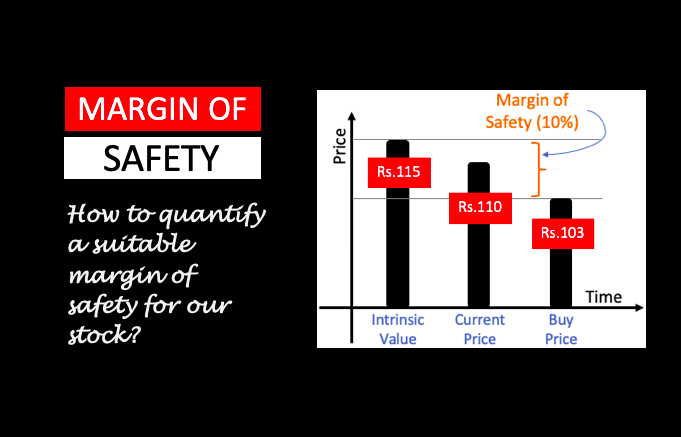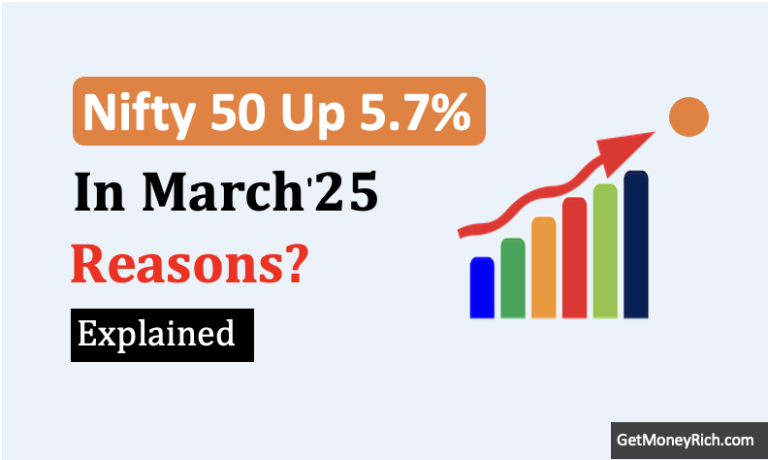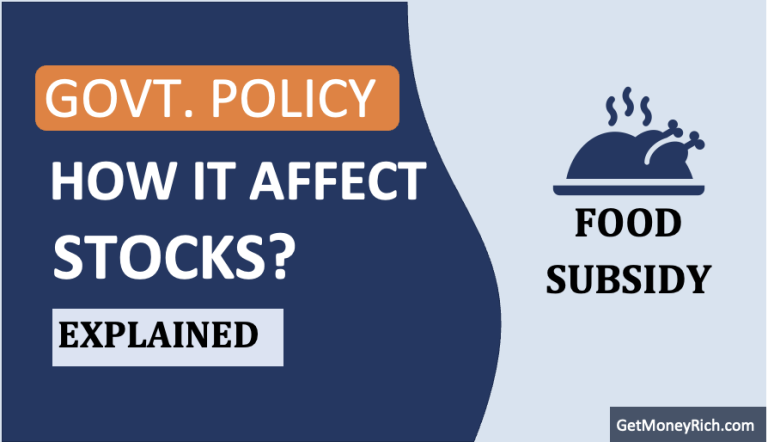Imagine that you are a Cricket fan and you have to pick your favourite cricket team. But you must do it not just by how many matches they win but also by how fair, responsible, and supportive they are to their players, fans, and even the cricket community. That’s how investing in ESG (Environmental, Social, and Governance) works in the world of stocks. List of Top Stocks Preferred by ESG Mutual Funds.
ESG investing isn’t just about choosing companies that make profits. It’s about picking businesses that care for the following:
- The planet (E for Environmental),
- Treat people fairly (S for Social), and
- Run their operations with honesty & ethics (G for Governance).
For example, a company that uses solar energy, ensures its workers are happy, and avoids fraud fits the ESG bill perfectly. Another example, companies within the Adani Group, whose chairman has been indicted in a US court, is allegedly not complying with the the “Governance” guidelines. Hence, it will not fit the ESG bill.
So, why are investors suddenly interested in ESG?
Because it’s like ensuring you plant trees in your garden rather than quick-growing weeds. While ESG companies might not always promise the fastest returns, they tend to build a better, more sustainable future. Globally, the idea has grown because people care more about climate change, equality, and corporate responsibility.
But here’s a fun fact: it’s also about smart investing. Studies show companies with strong ESG practices often perform well in the long run. Such companies avoid legal troubles and attract more loyal customers, and employees, which eventually result in fast compounding growth in long-term
Now, let’s zoom in on India.
ESG investing is especially important here because of the challenges we face, like pollution, inequality, and corporate scams. Indian companies that take ESG seriously are contributing to solving these issues. For instance, IT firms focusing on clean energy or FMCG giants reducing plastic waste are ESG heroes.
We as investor can also contribute to this fantastic concept of ESG investing? How? By investing in ESG stocks and making this stocks more popular compared to other non-ESG compliant stocks.
ESG investing is a smarter way to grow wealth while staying mindful of the world we live in. It’s about putting money where our values are. That’s why it’s gaining attention, not just from global investors but from Indians like us who want to make a difference.
Topics
1. What is ESG Investing?
Let’s imagine that we are in school and we have to choose our school’s next head boy/girl (and you have three-four options).
Would you only care about how many exams they’ve topped? Or would you also consider if they’re kind, responsible, and honest?
Similarly, when people invest their money, they don’t just look at which companies make the most profit. They also think about how these companies treat the environment, their employees, and how ethically they operate. That’s what ESG investing is all about.
ESG stands for Environmental, Social, and Governance. These are three pillars that help investors judge a company’s overall behavior, not just its financial performance.
Let’s break them down:
1.1 Environmental: Caring for Our Planet
This pillar looks at how a company’s activities affect the Earth.
- Sustainability: Does the company use resources (like water and energy) wisely without wasting them?
- Energy Usage: Is it switching to clean energy like solar or wind, or is it still burning coal?
- Waste Management: What happens to the waste it generates? Is it recycled, or does it pollute rivers and land?
For example, a company building electric vehicles or installing solar panels in its factories would score high on the Environmental scale.
1.2 Social: Caring for People
This pillar focuses on how a company treats people – its employees, customers, and society.
- Employee Relations: Are employees paid fairly? Do they get good benefits and work in safe conditions?
- Diversity: Does the company hire people of different genders, backgrounds, and abilities?
- Community Impact: Does it give back to society by funding schools or hospitals?
For instance, an IT company providing free education in rural India would shine on the Social front. Similarly, most of the Tata Group companies are like a shining star when it comes to employee care and community service. On the other hand, the kind of news that are circulating about OLA Electric’s customer support, for sure at present they will have low “social” rating from analysts.
1.3 Governance: Playing by the Rules
The Governance pillar ensures that companies act responsibly and don’t break rules to make profits.
- Corporate Ethics: Are they honest about their finances? Do they pay their taxes?
- Board Structure: Are there enough independent members on the board to keep the company honest?
- Transparency: Do they clearly share information with their investors and stakeholders?
For example, Infosys is known for its strong governance practices. Its diverse board of directors ensuring good perspectives and accountability. They also maintain transparency with stakeholders and adhere strictly to ethical financial reporting.
Another example, Adani Group has faced scrutiny for governance issues, particularly around the transparency of its financial dealings and the independence of its board. The conglomerate has been criticized for potentially lacking sufficient independent oversight.
Traditional vs. ESG Investing
Now, how is this different from traditional investing?
Traditional investing is like judging a cricket player only by their batting average. You care only about numbers – profits, market share, or growth rates. ESG investing is like considering a player’s sportsmanship, team spirit, and contribution to the game’s future.
With ESG investing, you look beyond the numbers.
You ask: Is this company responsible? Will its actions help the world in the long run? A traditional investor might invest in a highly profitable coal mining company, while an ESG investor would prefer a renewable energy firm, even if its profits are lower today.
2. Why Consider ESG Investing?
Suppose you have to decide what kind of food to eat every day. Would you choose junk food just because it’s cheap and tasty, or would you pick something healthier that keeps you fit in the long run?
ESG investing works the same way. It focuses on companies that are not just profitable today but will remain healthy till very long time horizons.
Let me explain why ESG investing matters:
2.1. Long-Term Sustainability of Companies
Companies that care for the environment, treat their employees & society well, and operate ethically often have better chances of surviving and growing.
Think of a business that uses renewable energy or manages its waste responsibly. They are not only saving money on energy costs but is also avoiding potential penalties for pollution.
In contrast, companies harming the environment or ignoring their workers may struggle with court cases or loss of public trust.
For example, Tata Consultancy Services (TCS), a well-known Indian IT company, invests heavily in sustainability programs and employee welfare. These practices not only help society but also build a loyal workforce and attract global clients who value ethical businesses.
2.2 Risk Mitigation
Every business faces risks.
For ESG companies, risks like environmental damage or bad labor practices are lower.
- Consider a coal mining company. It could face shutdowns due to stricter pollution rules.
- On the other hand, a solar energy company won’t face such risks and might even get government support.
Take the example of Infosys, which focuses on green energy initiatives and has achieved carbon neutrality (read here).
2.3 Alignment with Personal Values
We all must primarily invest in things (stocks) we believe in. If you are someone who is attracted by strong values, ethical practices, etc, ESG is for you.
ESG investing lets you put your money in companies that match your values. If you care about clean air, fair wages, or ethical business practices, you can support businesses that do the same. This isn’t just investing, it’s voting for the kind of world you want to live in.
For instance, HDFC Bank is an example of a socially responsible company. It runs initiatives like rural development programs and skill-building for underprivileged communities (read more about it here).
By investing in such companies, you’re indirectly contributing to their positive impact on society.
3. Key ESG Investing Strategies
Imagine you’re forming a cricket team. You don’t pick just anyone, you have specific rules. You might avoid players who don’t follow fair play. You want to focus on those who have great skills and a good attitude.
ESG investing strategies work similarly. They guide investors on how to choose companies based on their environmental, social, and governance practices.
Let’s explore some common strategies:
3.1 Screening Methodology
Screening is like setting rules for who can be part of your team. There are two main types:
- Positive Screening: Picking the Best Players: This method involves selecting companies that excel in ESG practices. These are the leaders – the ones taking steps toward renewable energy, treating employees well, and maintaining ethical governance. For example, a company like Tata Steel, which focuses on sustainability and social impact, might be chosen for its strong ESG practices.
- Negative Screening: Avoiding the Bad Apples: Here, you exclude companies or industries that don’t align with ESG values. This could include tobacco companies, coal power producers, or businesses involved in unethical practices. For instance, many ESG funds in India avoid investing in companies associated with high carbon emissions, gambling, tobacco, alcohol, etc.
3.2 Thematic Investing: Supporting a Cause
Thematic investing focuses on specific ESG themes, like renewable energy or clean technology. Think of it as building a team to solve a particular problem, such as reducing pollution or promoting gender equality.
For example, an investor might choose companies involved in electric vehicles (like Tata Motors) or solar energy projects (like NTPC Green Energy IPO). This strategy allows you to support industries that are shaping a sustainable future.
3.3 Engagement and Advocacy: Being a Responsible Shareholder
This strategy goes beyond picking stocks.
It’s about actively participating in a company’s decisions to encourage better ESG practices. Think of it as being a team coach, guiding players to improve their performance.
For instance, shareholders might push a company to reduce its carbon footprint or improve worker conditions. Large institutional investors often engage directly with company management to drive positive changes.
3.4 Integration: Mixing ESG into the Recipe
This is like adding extra vitamins to your diet.
Integration involves blending ESG factors with traditional financial analysis to make better investment decisions. Here, you look at both a company’s profits and its ESG performance to ensure a balanced approach.
For example, while analyzing a company, an ESG investor might assess its financial growth alongside factors like waste management or corporate transparency.
A company performing well in both areas is likely to be a safer long-term investment.
4. ESG Investing in India
If you’re planting a tree today, you are not doing it for immediate gains.
Over time, it grows, attracting birds, providing shade and fruits, etc. That’s how ESG investing is evolving in India, it’s growing steadily.
ESG Investing is a concept which investors in India are slowly becoming aware of its long term potential.
People are realizing that this concept will help not just the investor, company, but also the whole mother nature and culture of the society.
Let’s look at some trends shaping ESG investing in India.
4.1 Growth of ESG Mutual Funds and ETFs
ESG-focused mutual funds and exchange-traded funds (ETFs) are becoming popular in India. These funds invest in companies that perform well on environmental, social, and governance criteria. For example, following are the mutual funds that are specifically designed to include ESG-compliant companies.
ESG Mutual Funds in India
| Fund Name | Size (Rs.Cr.) | Exp. Ratio |
| Axis ESG Fund | 1,333 | 1.27% |
| ABSL ESG Fund | 679 | 1.4% |
| ICICI Pru ESG Fund | 1,557 | 1.01% |
| Invesco ESG Fund | 519 | 1% |
| Kotak ESG Fund | 943 | 0.81% |
| Quant ESG Fund | 309 | 0.79% |
| Quantum ESG Fund | 88 | 0.85% |
| SBI ESG Fund | 5,750 | 1.31% |
| Mirae ESG ETF | 125 | 0.41% |
| WhiteOak ESG Fund | 56 | 0.49% |
Investors are drawn to these funds because they not only offer returns but also ensure their money supports ethical practices.
You can also read this report of CRISIL on ESG Mutual Funds in India.
Why the Rise? Younger investors and institutions are looking for sustainable options. Companies that care for the environment or promote diversity often outperform in the long run. This is what makes them attractive for these ESG mutual funds.
4.2 Increasing Regulatory Focus on ESG Disclosures
Regulations play a big role in shaping how companies behave.
In India, SEBI now requires the top 1,000 listed companies to report their ESG practices through a framework called Business Responsibility and Sustainability Reporting (BRSR) (read more about it here).
This means, companies must disclose how they manage issues like carbon emissions, employee welfare, and corporate ethics. For investors, these reports act like a report card, showing which companies are doing well on ESG factors.
- Impact of Regulation: Such rules make it easier for investors to identify responsible companies. They also encourage businesses to improve their ESG practices to stay competitive.
4.3 Indian Companies Adopting ESG Practices
Many Indian companies are stepping up their ESG game. Here are a few examples:
- Tata Consultancy Services (TCS): TCS focuses on renewable energy and reducing its carbon footprint. It also runs programs for employee well-being and education in rural areas.
- HDFC Bank: Known for its strong governance practices, HDFC Bank promotes financial inclusion by supporting small businesses and underprivileged communities.
- ITC Limited: ITC invests heavily in sustainable agriculture and water conservation, while also maintaining a focus on waste management (read more about it here).
These companies show that ESG isn’t just a Western concept—it’s becoming a priority in India too.
4.4 ESG Investing Practices Unique to India
India’s ESG practices often reflect its unique challenges and opportunities. For example:
- Focus on Renewable Energy: With India aiming to achieve 50% of its energy from renewables by 2030, companies in this sector are attracting ESG-focused investors. Firms like Adani Green Energy, Tata Power Solar, and NTPC are key players in this space.
- Social Inclusion: Indian companies emphasize community development. Initiatives like affordable healthcare, education for underprivileged children, and rural employment often play a big role in ESG evaluation here.
I’ve observed a significant shift in how Indian investors and companies view ESG. Five years ago, ESG was a niche concept. Today, it’s a growing force, driven by both regulations and investor demand.
While funds and regulations are paving the way, I believe more Indian companies need to adopt ESG practices proactively. The should do so not just to comply with rules but to stay relevant in a changing world.
For we investors, this is an exciting opportunity to make money and support companies that care for society and the planet.
5. Tips for Beginners in ESG Investing
Getting started with ESG investing can feel like standing in front of a buffet. There’s so much to choose from, and it’s hard to know what’s best for you. Here’s a step-by-step guide to help beginners in India to start practicing ESG investing.
5.1 Start with Diversified ESG Funds or ETFs
Think of ESG mutual funds or ETFs (Exchange-Traded Funds) as ready-made meal boxes. Instead of picking individual ingredients (or stocks), you get a balanced mix of companies that are already evaluated for ESG standards.
- Why start here: These funds are managed by experts who assess companies’ environmental, social, and governance (ESG) practices. For beginners, this reduces the hassle of choosing individual stocks.
- Popular Options in India: Funds like SBI Magnum ESG Fund or ICICI Prudential ESG Fund are great starting points. They offer exposure to companies with strong ESG credentials.
5.2 Research ESG Scores and Practices of Companies
Once you’re comfortable, you can start picking individual ESG-compliant companies. But how do you know if a company is “good” for ESG? You need to check its ESG score.
- What is an ESG Score? Think of it like a report card. Companies are rated based on their environmental care, social contributions, and governance practices. Higher scores indicate better ESG compliance.
- How to Research in India? Websites like Morningstar India, or even company annual reports provide detailed ESG scores and insights. For Indian companies, look at their Business Responsibility and Sustainability Report (BRSR), mandated by SEBI. Read this morningstar report on ESG rating on Adani Group Companies. Let me present to you the rating on a few Indian companies on the parameter of ESG
As per “Sustainalytics” rating of Indian companies, here is a list of a few listed stocks and their ESG Ratings:
| SL | Companies | ESG Risk Rating | Remark |
| 1 | Dabur India | 25.4 | Medium Risk |
| 2 | Indian Oil Corp. | 38.8 | High Risk |
| 3 | Havells | 18.5 | Low Risk |
| 4 | Indian Hotels | 26.4 | Medium Risk |
| 5 | 3M India | 21.2 | Medium Risk |
| 6 | Maruti | 29.01 | Medium Risk |
| 7 | Oil India | 39.2 | High Risk |
| 8 | Colgate | 27.8 | Medium Risk |
| 9 | India Cements | 40.4 | Severe Risk |
| 10 | NTPC | 38.4 | High Risk |
| 11 | Timken India | 27.3 | Medium Risk |
| 12 | Coal India | 41.4 | Severe Risk |
| 13 | Tata Power | 37.4 | High Risk |
| 14 | PTC India | 42.6 | Severe Risk |
| 15 | Bharti Airtel | 20 | Medium Risk |
| 16 | BASF | 29.1 | Medium Risk |
| 17 | Ahluwalia Cont. | 40.8 | Severe Risk |
| 18 | SAIL | 35.2 | High Risk |
| 19 | Schaeffler India | 18.9 | Low Risk |
| 20 | Sanofi India | 24.7 | Medium Risk |
| 21 | Nestle India | 24.1 | Medium Risk |
| 22 | Bata India | 20.2 | Medium Risk |
| 23 | Rallis India | 28.7 | Medium Risk |
| 24 | Bajaj Auto | 16 | Low Risk |
| 25 | Engineers India | 29.8 | Medium Risk |
| 26 | IRCTC | 16.9 | Low Risk |
| 27 | Graphite India | 20.9 | Medium Risk |
| 28 | GAIL | 28.5 | Medium Risk |
| 29 | Honeywell Auto | 22.2 | Medium Risk |
| 30 | Info Edge | 18.9 | Low Risk |
| 31 | TVS Motor | 15.4 | Low Risk |
| 32 | Home First Fin | 16.2 | Low Risk |
| 33 | Sumitomo Chem | 28.5 | Medium Risk |
| 34 | Godfrey Philips | 35.3 | High Risk |
| 35 | IEX | 18.8 | Low Risk |
5.3 Align Investments with Personal Values and Long-term Goals
Your investments should feel like a reflection of you.
Do you care deeply about clean energy? Are you passionate about gender diversity? Do you like leaders like the late Ratan Tata? ESG investing lets you put your money where your heart is.
- How to Align with Values? If you care about the environment, we can focus on companies like Tata Power Solar or NTPC Green (just for example). For social issues, look at companies with strong employee welfare practices like HDFC Bank or Tata Group companies.
- Consider Long-term Goals: ESG investing often aligns with long-term benefits. For example, investing in renewable energy companies today can yield strong returns as India pushes for green energy goals by 2030.
6. Stocks Preferred by ESG Mutual Funds
I’ve provided a list of top ESG Mutual Funds operating in India. In this section, I’ll provide you a list of top stocks in which these ESG mutual funds are investing in.
| SL | Name of Top ESG Stocks | Invested Value (Rs.Cr.) |
| 1 | HDFC Bank | 830.13 |
| 2 | ICICI Bank | 791.50 |
| 3 | Infosys | 774.62 |
| 4 | TCS | 349.64 |
| 5 | Axis Bank | 342.62 |
| 6 | Larsen & Toubro | 311.05 |
| 7 | Bharti Airtel | 257.05 |
| 8 | Maruti Suzuki India | 243.83 |
| 9 | Kotak Mahindra Bank | 239.72 |
| 10 | Ultratech Cement | 233.49 |
| 11 | SBI | 199.31 |
| 12 | Sun Pharma | 125.93 |
| 13 | Inox Wind | 76.48 |
| 14 | TVS Motor Company | 56.83 |
| 15 | HCL Technologies Limited | 54.86 |
| 16 | Torrent Power | 54.47 |
| 17 | Trent Limited | 51.30 |
| 18 | Salesforce Com | 42.88 |
| 19 | Mahindra & Mahindra | 42.36 |
| 20 | Hero Motocorp | 38.42 |
| 21 | Zomato | 37.99 |
| 22 | Linde India | 36.74 |
| 23 | ABB India | 33.01 |
| 24 | InterGlobe Aviation | 32.76 |
| 25 | HDFC LIC | 29.43 |
| 26 | Reliance Ind. | 29.15 |
| 27 | Jio Financial | 26.53 |
| 28 | TIMindtree | 26.41 |
| 29 | Britannia Ind. | 23.19 |
| 30 | ABFRL | 23.08 |
| 31 | LIC | 23.08 |
| 32 | Pfizer | 22.69 |
| 33 | Zydus Wellness | 22.60 |
| 34 | Coforge | 21.43 |
| 35 | V-Mart Retail | 19.68 |
| 36 | Nestle India | 17.88 |
| 37 | Manorama Ind. | 16.60 |
| 38 | Marico | 15.36 |
| 39 | Power Grid | 15.28 |
| 40 | LTIMindtree | 15.04 |
| 41 | Home First Finance Co | 14.60 |
| 42 | Persistent Systems | 3.97 |
| 43 | Indian Hotels | 3.94 |
| 44 | Tata Consumer Products | 2.37 |
| 45 | Tata Communications | 2.30 |
| 46 | ICICI Pru LIC | 2.20 |
| 47 | Info Edge (India) | 1.38 |
| 48 | ICICI Securities | 1.34 |
Conclusion
Start simple.
Don’t get bogged down by jargon or feel pressured to be an expert overnight.
ESG investing is like a journey – your first steps might be wobbly, but with time, you’ll find your balance.
For beginners in India, I recommend beginning with a diversified ESG fund.
Once you’ve gained confidence, move on to researching individual stocks that resonate with your values. The key is patience and consistency (here is a list of stocks which ESG funds prefer).
Remember, investing isn’t just about making money, it’s also about making a difference. And ESG investing lets you do both.
If you found this article useful, please share it with fellow investors or leave your thoughts in the comments below!
Have a happy investing.
Frequently Asked Questions (FAQs)
ESG investing considers Environmental, Social, and Governance factors alongside financial returns to support sustainable and ethical business practices.
Yes, ESG strategies promote long-term returns, mitigate risks, and align investments with personal values and global sustainability goals.
ESG’s roots trace back to the United Nations’ Principles for Responsible Investment (UNPRI) introduced in 2006.
ESG compliance isn’t mandatory for all, but SEBI mandates Business Responsibility and Sustainability Reporting (BRSR) for top-listed companies.
ESG is rising due to climate concerns, regulatory focus, and investor demand for sustainable, socially responsible businesses.





